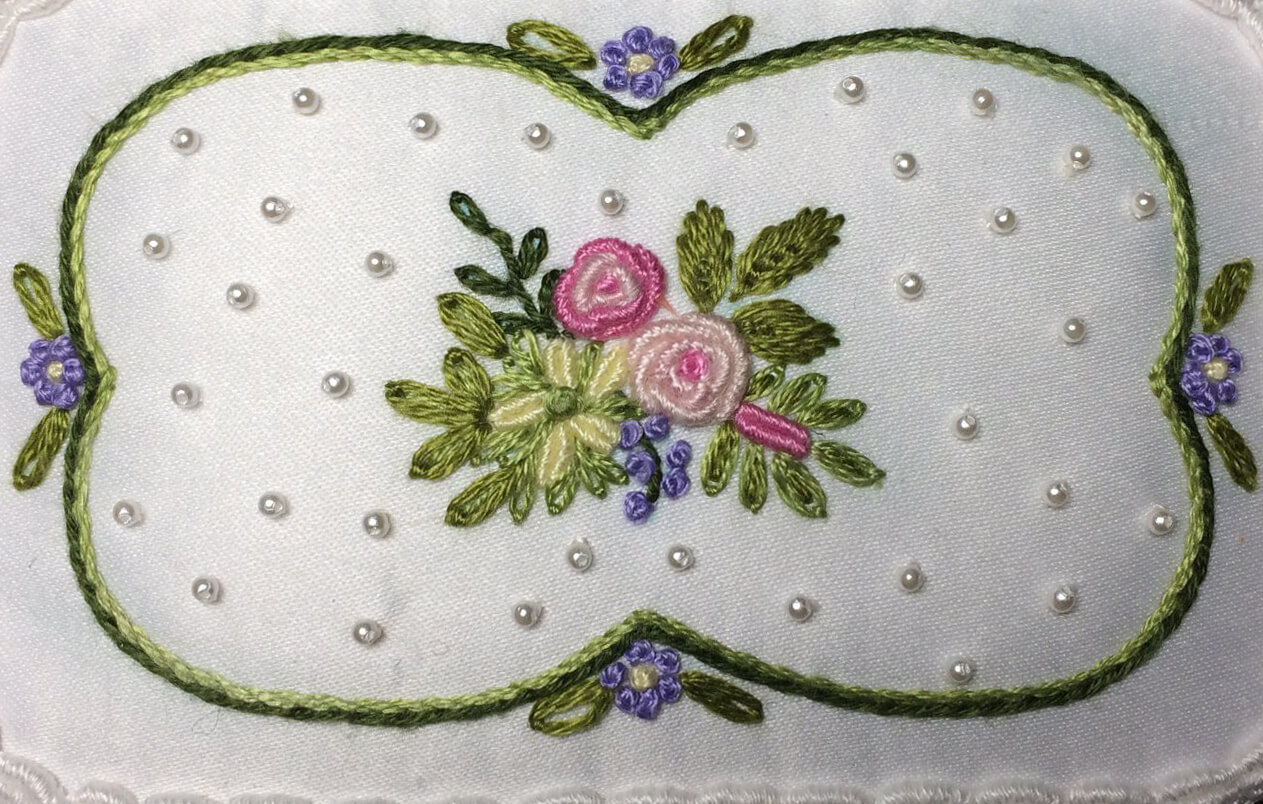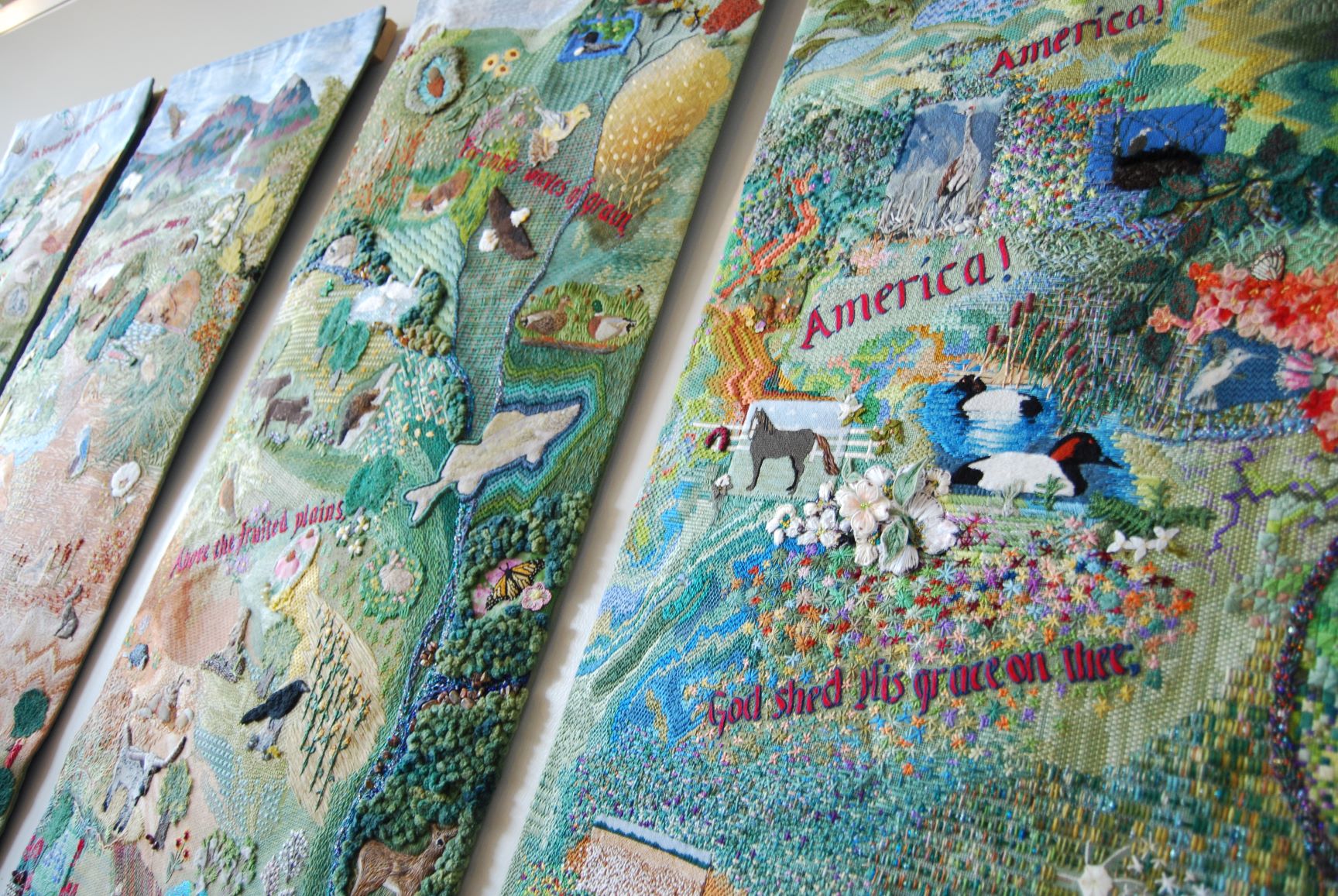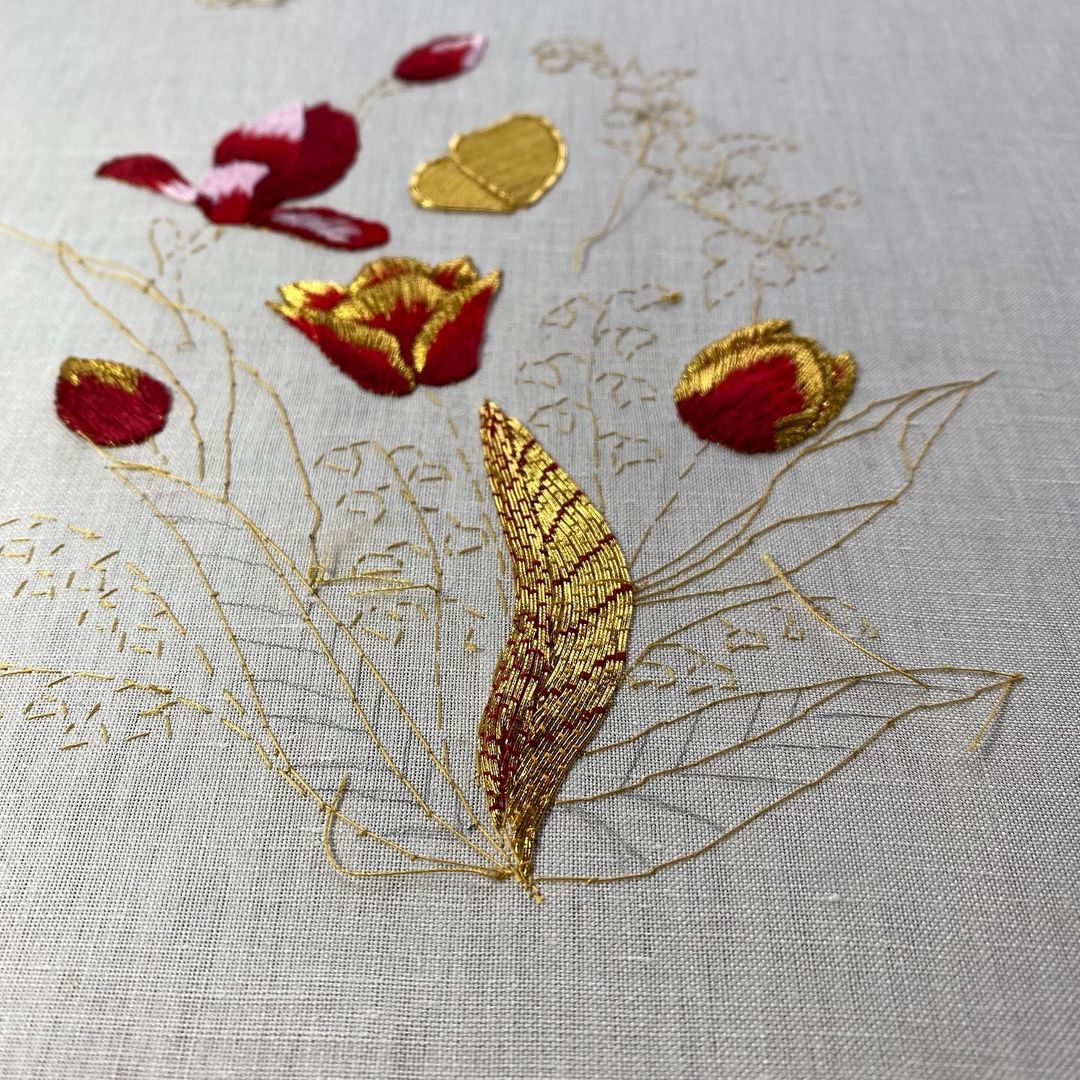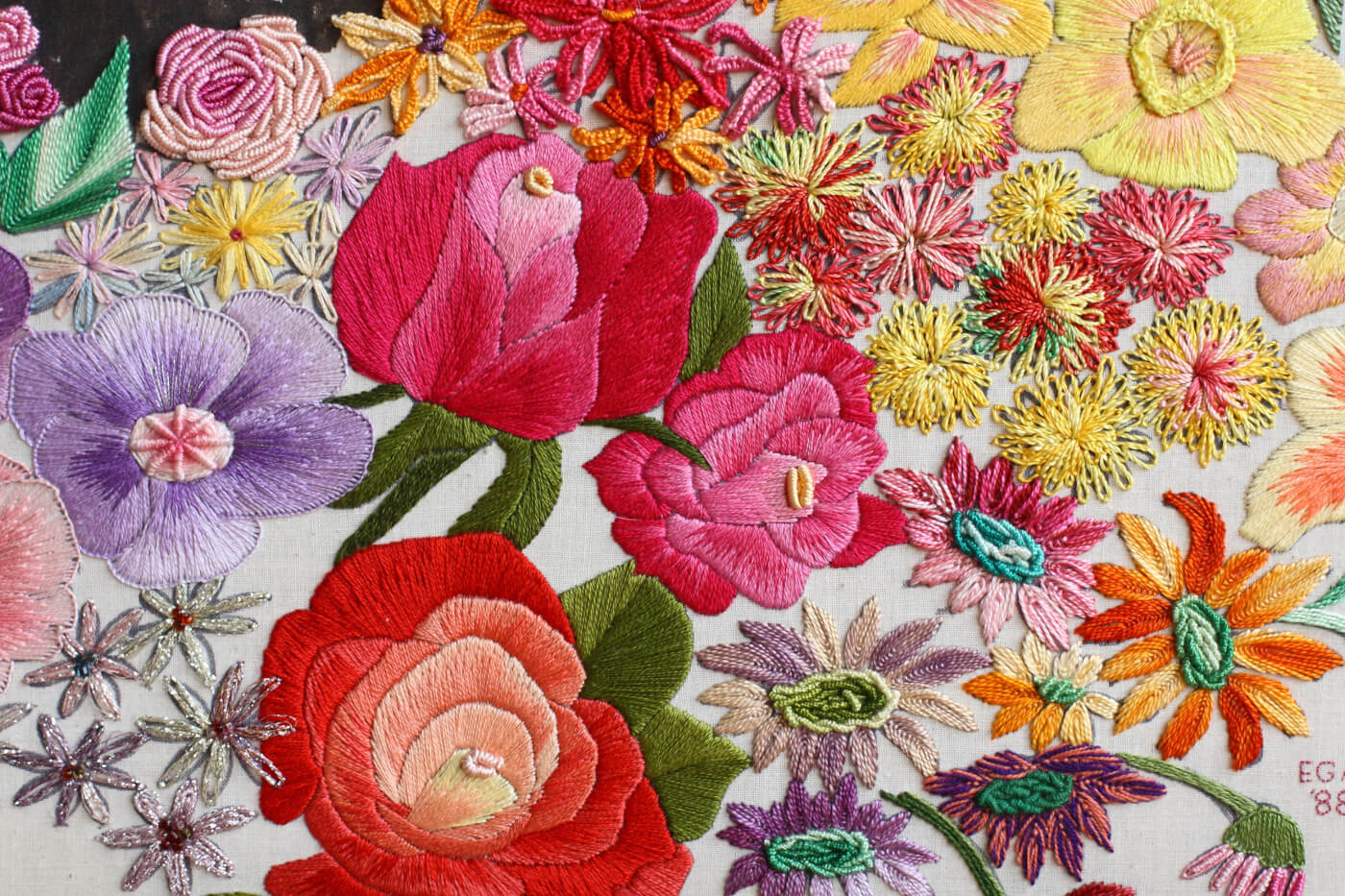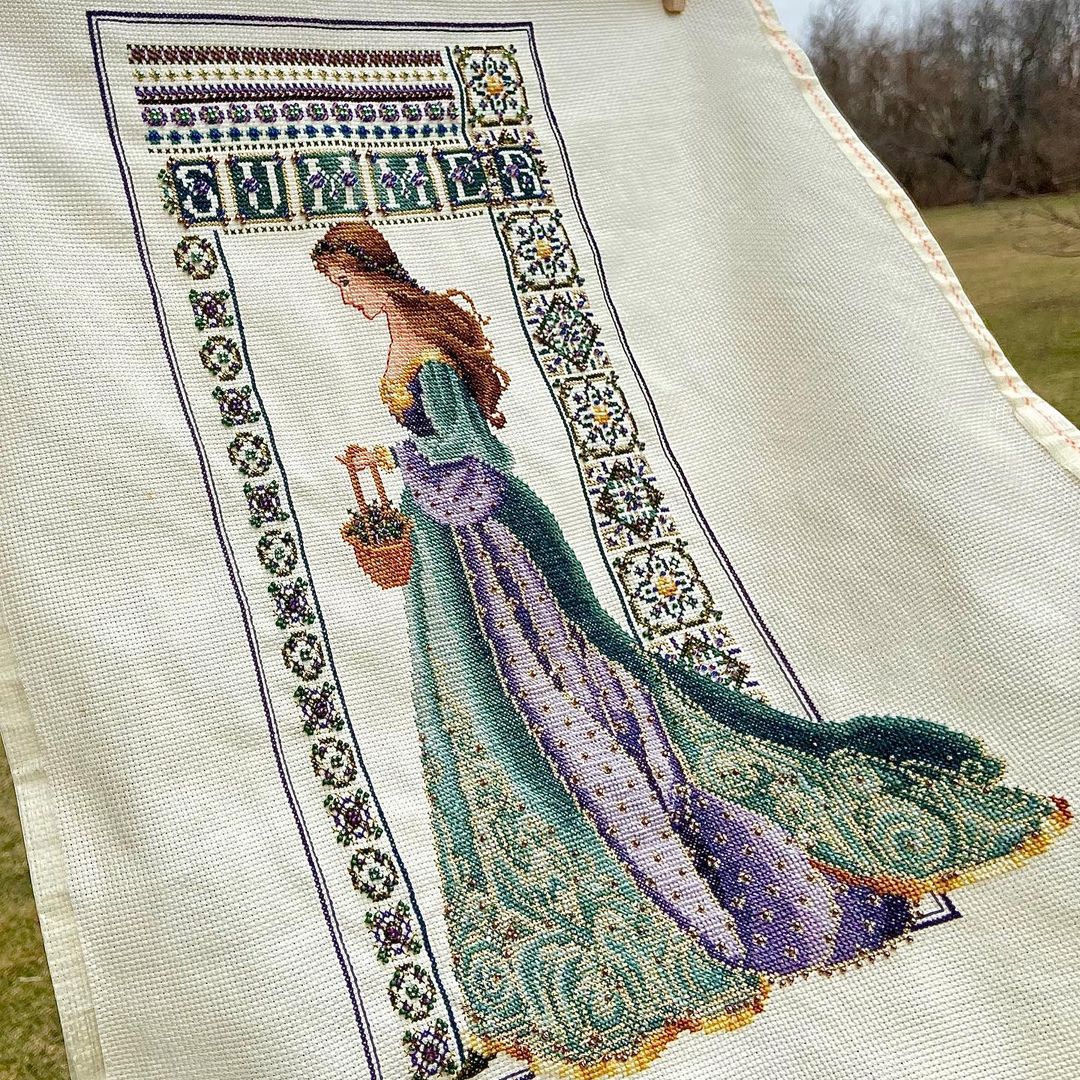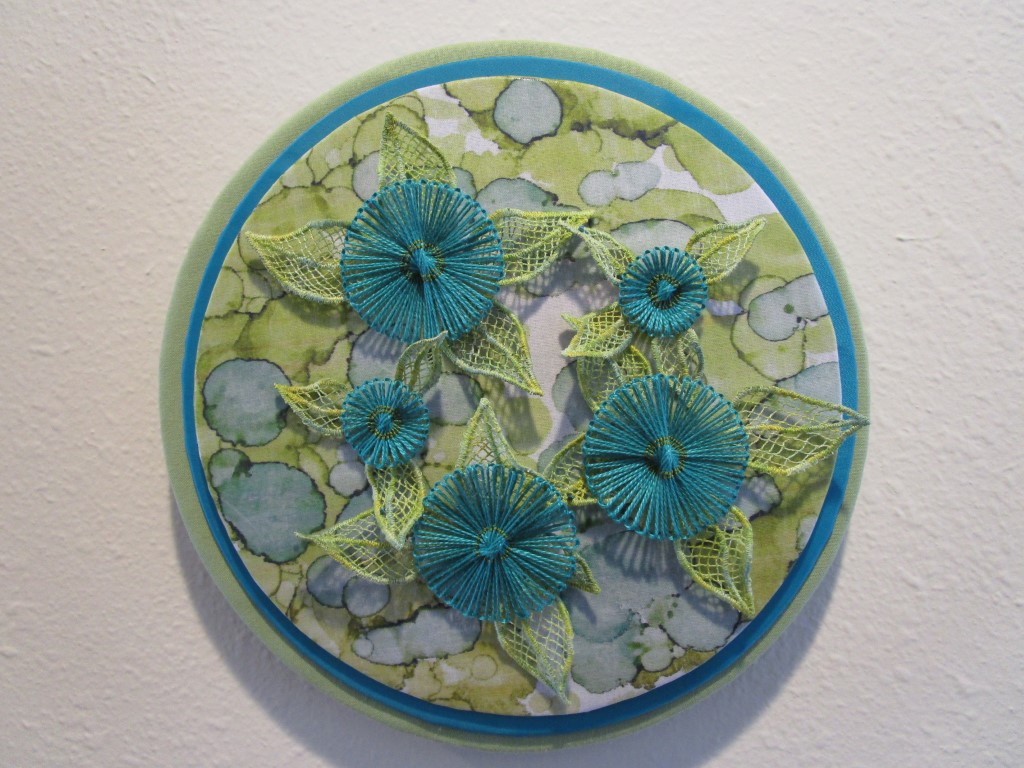Region Mini Classes 2024
Welcome to the Region Mini-Classes Page!
The Tennessee Valley Region of EGA will be hosting seven mini-classes at the 2024 National Seminar on Tuesday, August 13, 2024 at the Hilton Hotel in Atlanta, GA.
Registration for these classes is separate from seminar registration and requires this Registration Form (PDF Version). All registrations received are on a first come, first served basis.
Take a look and make sure to click on the thumbnail to see the full image.
Questions about the Tennessee Valley Region Mini-Classes can be addressed to Mini Class Chair and Registrat Judy Brewer at jjbrew@comcast.net.
-
TVR1 3-D Beaded Star
Taught by Brenda Willis (view bio)Brenda has been sewing since her highly-creative mother put a needle in her hand at 4 years old. Brenda has been quilting for 35 years, and teaching quilt making for 20 years. While she has collected beads and shiny things for many years, Brenda got serious about beading about 15 years ago and discovered a wonderful trait of beading! You can show off your finished beadwork much easier than a bed-sized quilt. Brenda strives to help each student understand the beading process so that the project can be finished at home, along with enjoying the process and laughing a little.
August 13, 2024 | 6:00 pm to 9:00 pmAtlanta, GATuesday evening mini-classes are presented by the Tennessee Valley Region and require a separate Registration Form from the seminar registration.
Learn two beading stitches (or hone existing skills) and create a 3-dimensional star. The star requires peyote and herring-bone stitches. A white cylinder bead is used as the dominant color, and a choice of accent color: green, red or blue – in the class. Students are welcome to use their own beads, but are cautioned to use cylinder beads from the same manufacture.
Technique: Beading
Kit Cost: $15
Proficiency: All Levels
Design Area: 2” x 2”
Kit Contents: Size 11 cylinder beads (2 colors), fireline, beading needles (size 12 and 13)
Student Provides: Beading mat, thread conditioner, extra magnification and light (if needed) -
TVR4 Georgian Mountmellick
Taught by Whitney Danhof (view bio)Whitney Danhof holds a Masters Degree in Home Economics Education. She has been actively stitching since 1997 when she joined the Cheekwood Chapter of EGA. She has taught many projects and programs for her chapter, served as program chair and led group correspondence courses. She is currently working on Step 5 of the EGA Master Craftsman program in Counted Thread. Whitney particularly enjoys counted thread and whitework and exploring traditional ethnic embroidery techniques.
August 13, 2024 | 6:00 pm to 9:00 pmAtlanta, GATuesday evening mini-classes are presented by the Tennessee Valley Region and require a separate Registration Form from the seminar registration.
White matte cotton threads on white cotton satin jean fabric with a sheen create a beautifully textured Mountmellick flat fold stand up. The peach blossom and bud, pecan and blueberries represent Georgia and its agricultural products for a lovely memory of your time in Atlanta. Learn about the traditional Mountmellick materials and stitches including Portuguese stem, Palestrina knot, stem, satin, chain, backstitch, whipped backstitch, French knot, detached chain, fly, straight and two types of padding. Finish at home with instructions to create a flat fold stand up using your own choice of fabric and cording color.
Technique: Mountmellick
Kit Cost: $20.00
Proficiency: Basic Intermediate
Design Area: 2 ¾” x 4”
Kit Contents: Cotton satin jean fabric with design applied; Mountmellick cotton threads in sizes 2, 3 and 4; #22 chenille needles; needle grabber; cotton batting; matboard for mounting
Student Provides: 6-8” bound embroidery hoop with screw that has a slot to tighten and screwdriver for hoop; Usual stitching supplies; For finishing into flat fold at home – ¼ yard fabric for backing, 6” coordinating ribbon and 2 skeins coordinating cotton embroidery floss for twisted cord -
TVR5 Three Years at the Royal School of Needlework – 1952 – 1955
Taught by Marion Scoular (view bio)Marion Scoular is a 3-year, Mark Excellent graduate of The Royal School of Needlework and a City and Guild’s Silver medallist. She has taught dressmaking in English High Schools, owned The Robin Hood Wool Shop for 13 years; taught Adult Education for Clemson University and has judged, lectured and taught in 49 states, Canada, Mexico and Australia. She is the author of many booklets and articles on Embroidery techniques
August 13, 2024 | 6:00 pm to 9:00 pmAtlanta, GATuesday evening mini-classes are presented by the Tennessee Valley Region and require a separate Registration Form from the seminar registration.
Marion Scoular is a nationally known teacher, and also happens to be a member of the Dogwood Chapter in TVR. She is presenting a 2 and 1/2 hour lecture about her 3 year training at the Royal School of Needlework in England. We invite you to join Marion in this most interesting lecture as she shares her experiences at the RSN. The front of the room will be filled with examples of her work created during those days of study.
Technique: Lecture
Cost: $40 -
TVR6 Try your hand at Sashiko, an introductory class in Sashiko
Taught by Lois Threlkeld (view bio)Lois Threlkeld is a member of the Knoxville Chapter, as well as the past Tennessee Valley Region director, Share-a-Stitch chairman, and chapter representative. She has designed two Petite Projects, available on the EGA website. She holds bachelor’s degrees in chemistry and civil engineering and a master’s degree in industrial engineering from the University of Tennessee. After spending her career at Tennessee Valley Authority in engineering management, Threlkeld is now retired and lives in Tennessee with her husband. She has designed kneelers for two churches, teaches classes at region seminars, and enjoys traveling the world and stitching wherever she goes.
August 13, 2024 | 6:00 pm to 9:00 pmAtlanta, GATuesday evening mini-classes are presented by the Tennessee Valley Region and require a separate Registration Form from the seminar registration.
Students will have an introductory class in Sashiko. Class will provide instructions to complete 4 Sashiko coasters.
Technique: Sashiko
Kit Cost: $25
Proficiency: Basic
Design Area: 3 ½ “ each ( 4 coasters)
Kit Contents: Sashiko cotton linen blend in Navy. Sashiko threads in white, gold and red, 2 Sashiko needles, piece of Saral transfer Paper, navy fabric enough for 4 coasters, batting, backing fabric, instructions.
Student Provides: Usual stitching supplies
